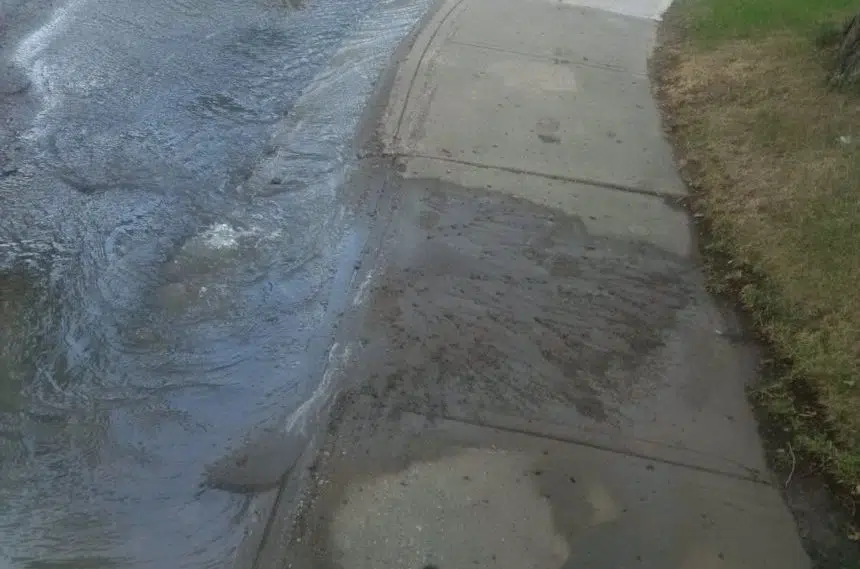Pat Wilson, director of water works, said in 2003 there were a total of 72 breaks in August. As of Wednesday, the city had already hit that 72 mark with more than a week left to go in the month.
“We will have more before the end of the month,” Wilson said.
The city is currently averaging seven new water breaks each day and it’s closing up between eight and 10, according to Wilson. Typically, crews would have around five or six leaks waiting for repair. Wednesday morning there were 55 waiting for attention.
“We have over 1,000 kilometres of mains and many of them are dating back to the 50s … we have 100-year-old pipe in the ground and we can only fix so much in a year,” said Wilson.
Because of the jump in numbers, she said crews are being taken off some jobs and redirected to focus on this area.
“We are redeploying as many staff and freeing them up from other work so that we can get them out there and get these closed faster,” she said. “While we’re working on main breaks, we are doing less on perhaps our storm system or wastewater system, so we balance the work in that way.”
Wilson said the worst leaks get priority. Residents are asked to alert the city of any new breaks or active breaks that worsen. Typically, Wilson said a crew can get to the problem within 24 hours, clarifying it might not be completely fixed but at least the process will have begun.
Depending on how the fall shapes up, the city could break another record for the number of water main breaks in a year. In 2003, there were 341. So far in 2017, there have been 128, although Wilson notes that August and September are usually the months with the most breaks.
At this point, since the pipes are seven to eight feet underground, Wilson explained the city would need several heavy rainfall events over a prolonged period to attack how dry the ground is and perhaps prevent it from shifting.







